
Domestic Thrillers
The perfect family, friends on holiday, a new mother, each of them with a secret. Brook and Sarah explore the themes of domestic thrillers and discuss a few books that don’t fall into the category.
Authors mentioned:
Elizabeth Haynes
Erin Kelly
Liane Moriarity
Tom Vowler
SJ Watson
Books mentioned:
And Then There Were None, Agatha Christie
The Woman in the Window, AJ Flynn
Gone Girl, Gillian Flynn
The Hunting Party by Lucy Foley
The Paris Apartment by Lucy Foley
The Girl on the Train, Paula Hawkins
The Girls in the Garden, Lisa Jewell
The Shining, Stephen King
1922, Stephen King
Christine, Stephen King
Books we've enjoyed:
Gone Girl, Gillian Flynn
Death of Mrs. Westaway, Ruth Ware
Rebecca, Daphne du Maurier
The Swap, Robyn Harding
Referenced Agatha Christie quote from Women of Mystery, Martha Hailey DuBose
For more information: cluedinmystery.com
Instagram: @cluedinmystery
Contact us: hello@cluedinmystery.com
Music: Signs To Nowhere by Shane Ivers - //www.silvermansound.com
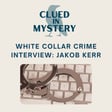


![[re-release] Dorothy L. Sayers image](https://media.zencastr.com/cdn-cgi/image/width=112,quality=85/image-files/61e1c276e3ec42007857cff9/0c9f0c0f-65b5-423a-a129-9414d2b8819e.jpg)
![[Re-release] Christie's Characters: Harley Quin image](https://media.zencastr.com/cdn-cgi/image/width=112,quality=85/image-files/61e1c276e3ec42007857cff9/19b66ded-f629-44f5-8280-f8a4afd4697c.jpg)
![[Re-release] Magic and Mystery with Tom Mead image](https://media.zencastr.com/cdn-cgi/image/width=112,quality=85/image-files/61e1c276e3ec42007857cff9/bf587b93-b2a8-41f6-af97-4772e2c0caa2.jpg)
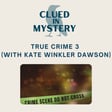
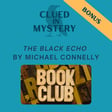
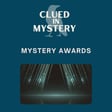
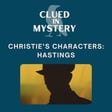
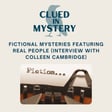
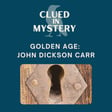

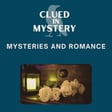

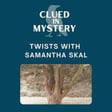
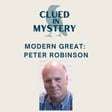
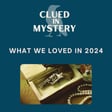

![[Re-release] Celebrity Authors image](https://media.zencastr.com/cdn-cgi/image/width=112,quality=85/image-files/61e1c276e3ec42007857cff9/6bf85c27-5b4b-472c-9f00-1aceb11c14f7.jpg)